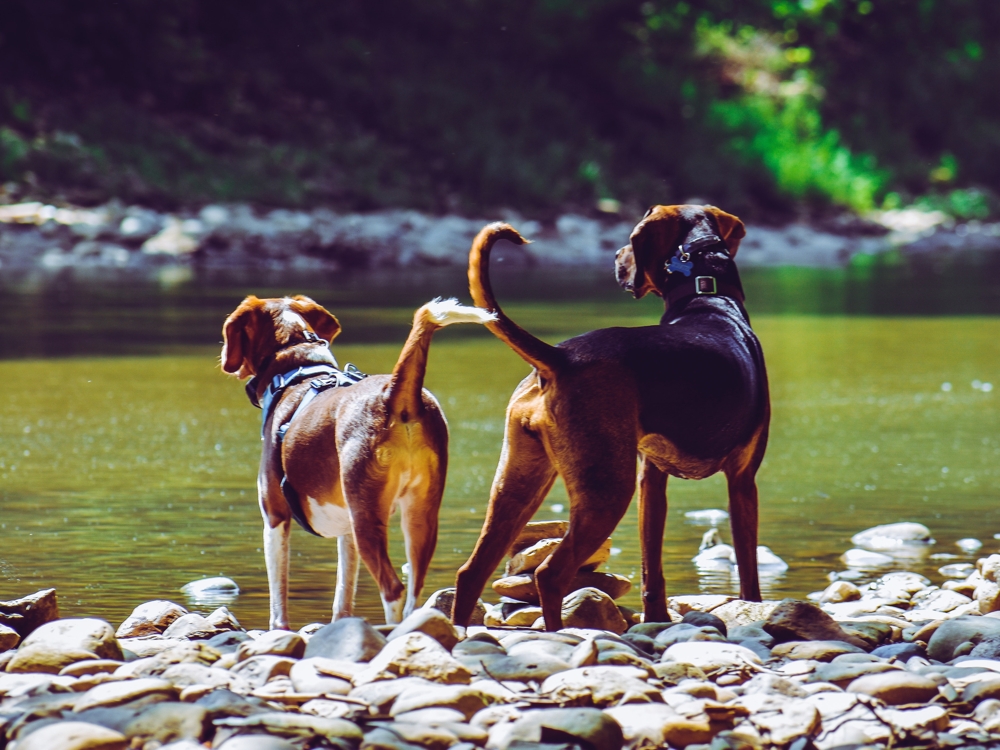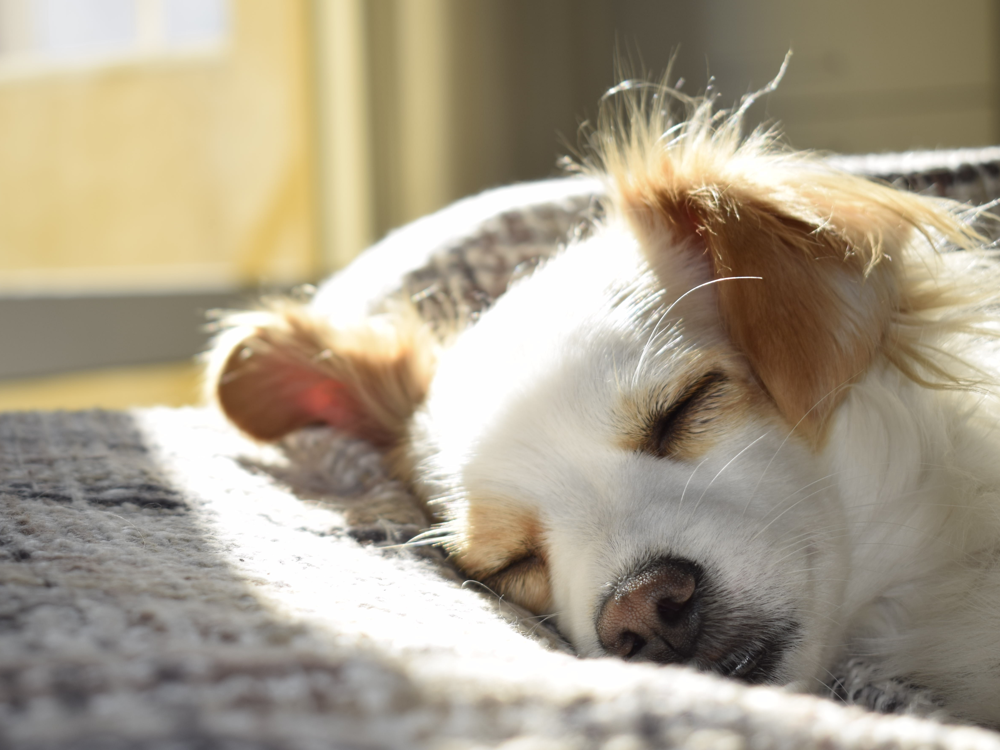When Should You Worry about Your Dog’s Diarrhoea?
Share
[Sassy_Social_Share]Because dogs are scavengers and will eat all sorts of rubbish, vomiting and diarrhoea are fairly common ailments for them. When you see your dog suffering from urgent, loose stools, you will probably have two questions: Why does my dog have diarrhoea? And What do I need to do for my dog right now?
One important way to tell if your dog’s diarrhoea is a sign of something serious is to look for any other symptoms. If your dog is also vomiting or has blood in their stool, it’s time to ring the vet. Most of the time dogs will not show any other signs of illness, but if they do, a visit to the vet is in order. Watch for any signs of a bloated belly or pain.

Regardless of why your dog has diarrhoea, you can help them recover by stopping their regular food and treats and putting them on a bland diet. Feed plain rice with boiled chicken or fish. Water is important to prevent dehydration, and if your dog isn’t drinking you can encourage them by giving them some low-salt broth. (Check the ingredients to ensure it doesn’t contain anything dangerous for dogs.)
Why Does My Dog Have Diarrhoea?
Every dog owner soon learns the ugly truth. Our beautiful babies will eat anything. In fact, the more disgusting the better, in their opinion. They raid the kitchen bin, snack in the cat’s litter tray and devour any stray piece of who-knows-what on their walks. Behind those sweet, soft eyes lurks a desire to eat the foulest rubbish they can find. It’s no wonder they occasionally suffer diarrhoea and vomiting! Causes of dog diarrhoea fall into two broad categories: things they ate and illness.

Almost any dog will cheerfully mill into garbage, but some do worse. They might eat various types of poison, including plants in the house or garden and the remains of rodents who were poisoned. Some of our food is poison, such as chocolate and xylitol (which is found in a range of products including chewing gum). Dogs can also swallow things they are playing with, including indigestible things.
Their diet can also be to blame. Switching food abruptly can cause diarrhoea. Introducing the new food by gradually mixing it with the old can prevent that. Dogs can also develop an intolerance of some ingredient in their food, which can cause a range of digestive problems.
Health Problems that Cause Diarrhoea in Dogs
If your dog’s diarrhoea persists for more than a day, it is wise to contact your vet because chronic diarrhoea can be caused by several different medical problems. Dogs are susceptible to viral and bacterial illnesses, and some of these can cause diarrhoea. Your vet will know if which bugs are doing the rounds, how serious they are and the best course of treatment to get your dog back to optimum health. It’s important to protect your dog with vaccinations against the most dangerous contagious illnesses, but the vaccines won’t protect against everything out there.
Routinely treating your dog for parasites can help protect them, but not all treatments protect against all the intestinal worms your dog can pick up. If your dog develops diarrhoea, particularly if it improves and then returns, worms could be the culprit. Keeping notes about when you deworm your pets can help protect your fur babies from these little creeps.
Dogs can and do experience stress. Changes in routine can make them anxious, and they also often reflect our moods so if we are stressed, they get stressed. Arguments in the family upset our pets too. Dogs can get themselves worked up over simple things like a trip to the groomer or a new dog next door too. And some dogs are simply more prone to episodes of diarrhoea, so for them stress can be a trigger. If you have ruled out other common causes, think about anything that might be upsetting your dog.
Ironically, medication to heal one illness can sometimes cause new problems. If your dog experiences diarrhoea after starting a new medication, discuss it with your vet. Depending on the medication and the dog, it might be a short-term side effect or it might be better to switch to a different medicine.
Puppies and Elderly Dogs with Diarrhoea
In a healthy adult dog, a brief bout of diarrhoea is usually more annoying that worrying. But the very young and the very old are more vulnerable. They can more easily develop dehydration when they have diarrhoea.

Puppies are particularly prone to diarrhoea because their immune systems aren’t fully developed to fight off viruses and they are more likely to pick up strange things and eat them, much like human toddlers who put everything in their mouths. Young pups face one serious danger – if they are not fully vaccinated, they can contract parvovirus. Parvo is a deadly disease and a medical emergency. If your puppy develops diarrhoea and seems unwell before their vaccines are completed, get them in to see the vet urgently. Dogs who survive parvo can have lifelong complications from it.
Older dogs are also more fragile. Their immune systems are declining. Like us, age can make it harder to digest foods we once enjoyed. An older dog with diarrhoea merits a call to the vet.
Pups and older dogs can also be reacting to a change in food. When you are switching your dog to a more age-appropriate food, do it gradually. Start with a mix of one part new food to three parts old food for the first week. Then go to half new food and half old food for the second week. In the third week, feed three parts new food to one part old food. From week four, you can feed the new food exclusively. You can always slow this down if your dog is developing any digestive problems.
What causes diarrhoea in dogs? That’s a very broad question. The only way to determine what might have caused it in a specific individual is to look at their overall health and circumstances. Even then, it isn’t always obvious. In those instances, it makes sense to contact your vet.





